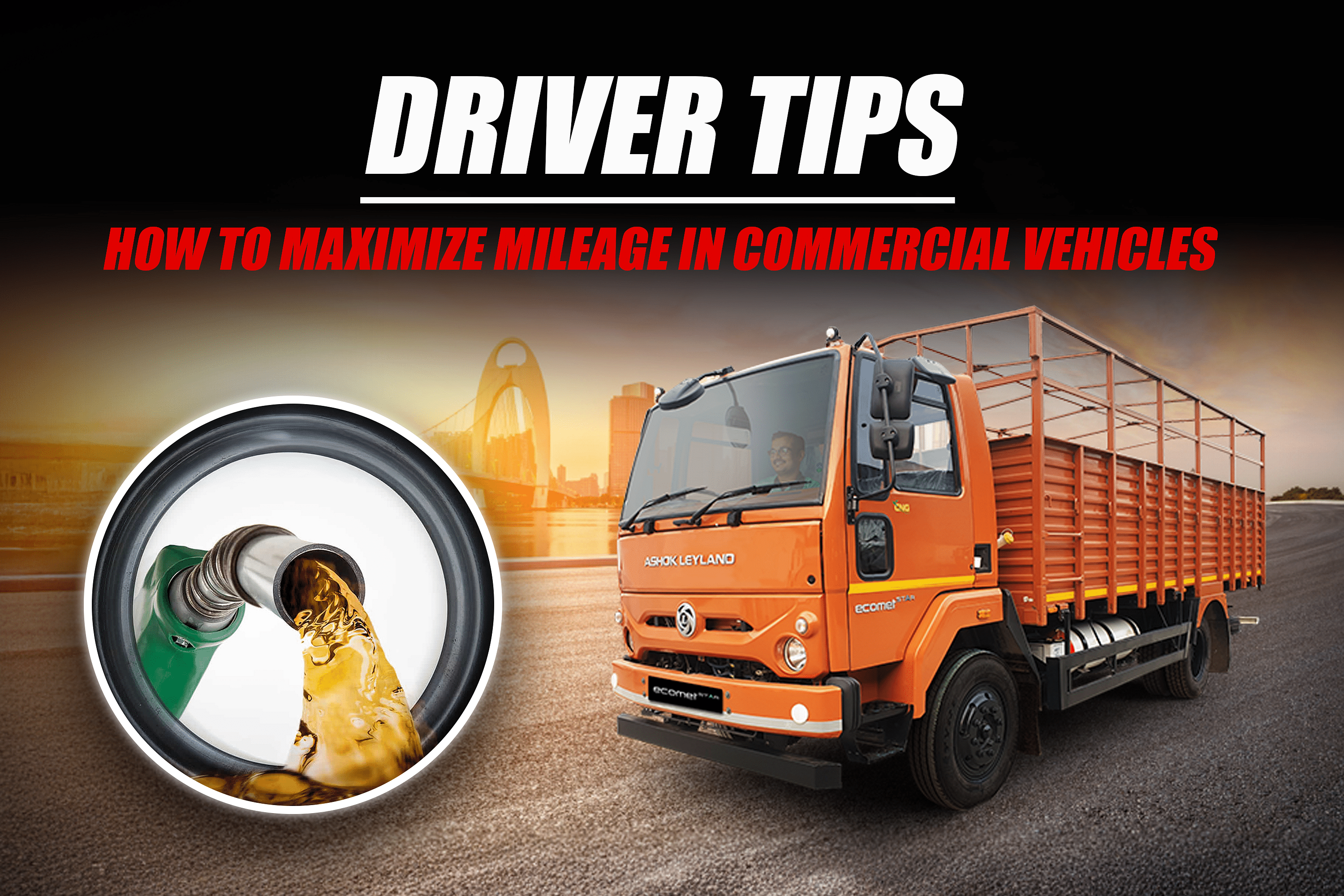Fuel costs rise, margins shrink and efficiency matters more than ever. In this environment, commercial vehicle operators must find every possible edge. Fuel, being the largest recurring expense, deserves top attention.
Drivers typically have the most to say. Their habits, minute by minute, trip by trip, determine how efficiently a commercial bus or commercial truck operates. Good driving conserves fuel and dumb driving consumes cash. This piece presents useful, in-the-field-tested driver advice to boost mileage, maximize savings, and prolong vehicle life.
Drive Smooth, Drive Smart
Fuel flows at its fastest rate when you drive aggressively. Sudden acceleration, aggressive braking, and high-speed cruising force the engine outside efficient ranges.
Truckers reap the biggest reward by having smooth throttle input. Smooth acceleration allows the engine to remain in its optimal RPMs. Lots of gear shifting? Wasteful. Sudden stops? Dangerous, and inefficient.
Bus drivers, particularly in urban areas, experience frequent stops. But anticipation goes a long way. Get your foot up ahead when a red light comes into view, cruise at constant speed between stops, and plan ahead, and the fuel remains behind.
Check Tire Pressure Daily
Tires do lose air and it is normal, but low tire pressure generates drag. Drag makes the engine work harder, that translates into more fuel, more expense, and more wear.
Begin each day with tire pressure checks, don't estimate instead use a gauge, and take the manufacturer's load-adjusted PSI.
Low pressure on long hauls in commercial trucks can cut mileage by 5–10%. On commercial buses, uneven wear means more frequent replacement and increased rolling resistance. Keep tires right, and fuel stays light.
Keep the Vehicle Fit
Engines operate optimally when they have good air, and a dirty air filter strangles airflow which lowers combustion efficiency, and inefficient combustion consumes more diesel.
Replace filters in a timely manner, inspect injectors, dirty injectors waste fuel. Fresh oil can be a key, whereas thickening old oil increases internal resistance.
If the check engine light comes on, don't dismiss it, that signal might indicate fuel system problems. Repair minor issues immediately and can avoid huge losses down the line.
Lower Dead Weight
Heavy trucks consume extra fuel, that's simple physics. Commercial trucks are engineered to haul weight, but surplus load reduces efficiency.
Clean out unnecessary gear, expunge unused tools, extra parts, or old cargo mounts. Schedule deliveries to unload heaviest loads first. Even 100 kg above can lessen mileage by 1–2%.
On buses, avoid mounting extra baggage unnecessarily. Lighten the load, and lighten the fuel bill.
Plan Routes That Save Fuel
A clever route saves time, and litres. Road congestion, poor roads, and unnecessary diversions all squander fuel.
Use current navigation, re-route if delays occur. Dispatchers can assist drivers by selecting fuel-efficient routes when scheduling.
In commercial vehicles, skip city routes in peak hours. In buses, coordinate to prevent overlap or retracing paths. Each skipped stop saves acceleration. Each saved acceleration saves diesel.
Master Gears and Momentum
Driving smoothly, not roughly, too late or too soon shifting can destroy mileage. Slogging the engine out in high gear causes it to work hard. Low-gear over-revving does the same thing.
Shift when the engine dictates, not when you're used to, in stick trucks, locate that magic RPM range. In automated vehicles, let the system manage gear usage, but override if conditions require.
Use momentum, coasting on gentle slopes when safe to do so. Don't brake hard, let the engine do it for you. Every gentle slowdown keeps energy in motion rather than wasting it.
Control Electrical Loads
Air conditioning makes it more comfortable, but it consumes too much fuel. AC systems take more energy from the engine at low speeds.
Turn AC off when stationary, instead run ventilation if weather permits. During winter months, defog manually before maxing out heat.
Don't leave cabin lights, screens, or infotainment systems on when parked. Small electrical draws are additive.
Educate Train Refresh
Seasoned drivers aren't always fuel-efficient drivers. Habits are developed, some are detrimental to mileage.
Provide eco-driving sessions on a regular basis. Display drivers with their mileage reports. Compare performance. Establish friendly challenges to beat.
Reward intelligent driving. Even a modest incentive stimulates alertness. Fuel savings escalate when drivers feel that they are included in the objective.
Use Telematics for Precision
What is measured improves. Telematics systems now monitor idle time, aggressive braking, acceleration habits, and gear use.
Review driver performance on a weekly basis. Mark trends. Correct when necessary. Acknowledge where merited.
Data tells trends. Some drivers over-rev. Some drivers idle for too long. Getting this behavior corrected via feedback increases efficiency, and responsibility.
Watch What You Refuel With
Fuel quality counts and dirty diesel fouls injectors, whereas water contamination can destroy combustion. Bad fuel robs mileage, sometimes significantly, refuel from reputable stations, and don't use small salespeople without filtration. Additives are to be used only with OEM sanction.
In large fleets, random checks of fuel quality detect issues early.
Don't Ignore Driver Well-being
Driver fatigue leads to poor decisions. An exhausted driver will overreact, brake too late, or accelerate unnecessarily, all of which lower fuel efficiency.
Get drivers to take regular breaks. Hydration, rest, and ergonomics are important. A relaxed driver drives well, and saves fuel by default.
The human element is usually the deciding factor.
Conclusion: Many Small Gains, One Big Result
There is no magic device that increases truck mileage overnight. No miracle for commercial buses in urban streets. But collectively, when you combine smooth driving, correct gear usage, tire inspection, weight management, route planning, and training, fuel savings occur. Each strategy is additive. Each driver contributes to the result. And each saved litre makes the business more robust.
Efficiency isn't something. It's all the pieces working together, improved.
For more articles and news, stay updated with 91trucks. Subscribe to our YouTube channel and follow us on Facebook, Instagram, and LinkedIn for the latest videos and updates from the automotive world!
Read More:










